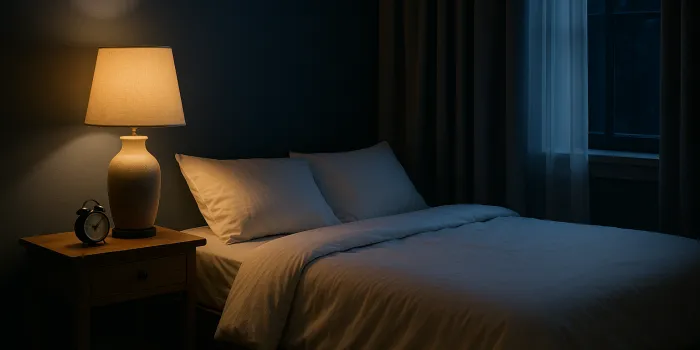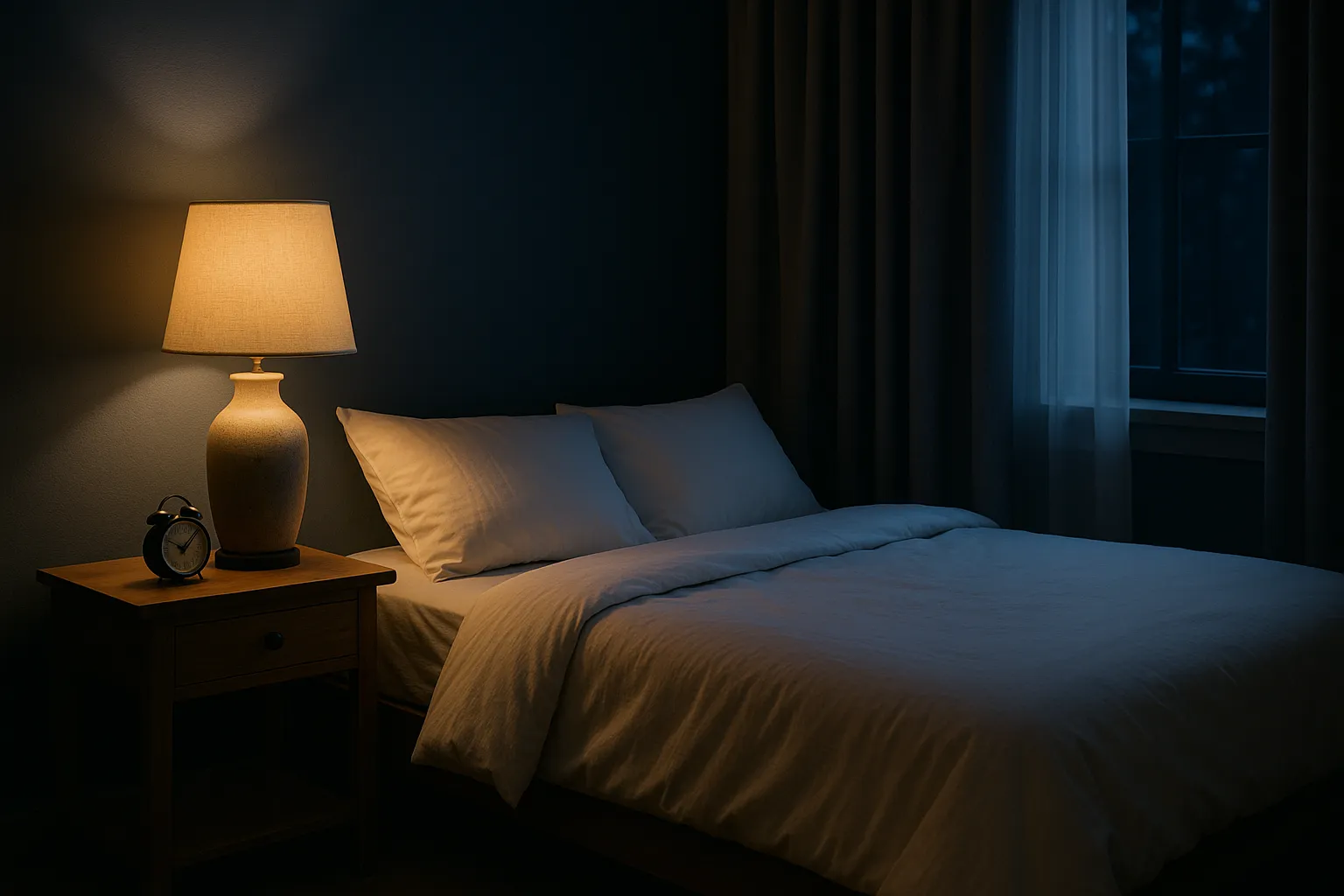10 Simple Sleep Hygiene Habits for Productive Mornings
Simple Sleep Hygiene for Productive Mornings: 10 Proven Habits for Restful Nights

Sleep is one of the most overlooked productivity tools. When you rest deeply, you wake up clear-headed, focused, and ready to take on the day. Yet millions of people struggle with poor sleep, feeling groggy no matter how many hours they log in bed. The good news? Better sleep doesn’t require complicated rituals or expensive gadgets—it starts with simple sleep hygiene habits anyone can adopt.

In this article, we’ll explore how proper sleep hygiene can dramatically improve your mornings, sharpen your focus, and boost your productivity.
What Is Sleep Hygiene and Why It Matters
Understanding the Science of Sleep
Sleep hygiene refers to a set of healthy practices and habits that promote consistent, quality sleep. Our brains go through multiple sleep stages each night—light sleep, deep sleep, and REM (Rapid Eye Movement)—each serving a vital role in physical recovery and mental processing. When your sleep is fragmented, your body doesn’t fully complete these cycles, leading to fatigue, brain fog, and mood swings.
How Sleep Affects Productivity and Focus
When you get adequate, restorative sleep, your prefrontal cortex—the part of your brain responsible for decision-making and focus—functions optimally. A well-rested brain processes information faster and is better equipped to manage stress. On the flip side, poor sleep reduces alertness, lowers creativity, and slows cognitive performance. Studies show that even one night of sleep deprivation can mimic the effects of alcohol impairment on concentration and judgment.
The Link Between Sleep Quality and Morning Success
Why Poor Sleep Leads to Low Energy
Sleep is the foundation of your circadian rhythm, the internal clock that regulates when you feel awake and when you feel tired. Poor sleep disrupts this rhythm, making mornings feel like an uphill battle. Your cortisol levels (the “wake-up hormone”) fail to rise properly, while melatonin lingers longer, keeping you sluggish.
The Power of Consistent Sleep Patterns
A consistent bedtime and wake-up time reinforce your body’s natural rhythms. Going to bed and waking up at the same times—even on weekends—helps your brain anticipate rest and alertness cycles, making it easier to fall asleep quickly and wake up refreshed.
10 Simple Sleep Hygiene Habits for Productive Mornings
1. Maintain a Consistent Sleep Schedule
Aim for the same bedtime and wake-up time every day. Consistency strengthens your circadian rhythm and improves sleep efficiency.
2. Create a Relaxing Bedtime Routine
Wind down with calming activities like reading, journaling, or deep breathing. Avoid stressful or mentally stimulating tasks right before bed.
3. Optimize Your Bedroom Environment
Keep your bedroom dark, cool, and quiet. Blackout curtains, white noise machines, and a supportive mattress can make a big difference.
4. Limit Screen Time Before Bed
Blue light from screens suppresses melatonin production. Try shutting off devices at least one hour before bed or use blue-light filters.
5. Be Mindful of Food and Drink Choices
Avoid caffeine after 2 p.m. and limit alcohol close to bedtime. Late-night meals can cause indigestion, interrupting sleep cycles.
6. Get Natural Light During the Day
Sunlight exposure during the morning helps regulate melatonin production, promoting better nighttime sleep.
7. Incorporate Gentle Evening Exercise
Light stretching or yoga can relax tense muscles and release endorphins, helping you unwind.
8. Manage Stress and Anxiety Before Bed
Try meditation, journaling, or guided relaxation to quiet your mind and reduce pre-sleep anxiety.
9. Keep Naps Short and Strategic
If you need to nap, keep it under 30 minutes and before 3 p.m. to prevent interference with nighttime sleep.
10. Listen to Your Body’s Natural Sleep Cues
When you start feeling drowsy, don’t fight it. Your body is signaling that it’s time to rest.
Common Sleep Hygiene Mistakes to Avoid
Even with the best intentions, many people unknowingly sabotage their sleep quality. Here are some common mistakes to steer clear of if you want truly productive mornings.
Overreliance on Caffeine
Caffeine is a double-edged sword. While it can help you stay alert, consuming it too late in the day can delay your sleep onset by hours. The average half-life of caffeine is about 6 hours, meaning that an afternoon coffee can still keep you wired at bedtime. If you’re struggling to fall asleep, try switching to herbal tea after lunch.
Inconsistent Bedtimes and Wake Times
Many people catch up on sleep during weekends, but this habit confuses your body’s internal clock. It’s better to maintain a consistent schedule—even if you go to bed slightly later—than to constantly shift your sleep window. Your brain thrives on regularity.
Overstimulation Before Sleep
Watching intense TV shows, scrolling on social media, or reading the news right before bed can activate your sympathetic nervous system (your fight-or-flight mode). This can make it much harder to relax. Instead, swap screens for calming pre-sleep rituals like reading or journaling.
Tools and Apps to Improve Sleep Hygiene
Technology isn’t always the enemy of good sleep—when used mindfully, it can actually support it.
Sleep Tracking Apps
Apps like Sleep Cycle, Pillow, and AutoSleep can monitor your sleep duration and quality, offering insights into how much deep or REM sleep you’re getting. These tools help you identify patterns, such as how caffeine, exercise, or stress affect your rest.
Smart Lighting and White Noise Machines
Smart bulbs that adjust color temperature automatically can mimic natural sunlight, helping you wind down gradually. White noise machines or apps like Calm and Headspace also help block distractions, creating a more peaceful sleep environment.
Creating a Morning Routine That Complements Good Sleep
Morning habits can either enhance or sabotage your nightly sleep hygiene. Here’s how to align your mornings for all-day productivity.
Start with Hydration and Light Movement
After hours of rest, your body is naturally dehydrated. Drinking a glass of water right after waking up helps jumpstart your metabolism. Combine it with a few minutes of stretching or gentle yoga to awaken your muscles and increase circulation.
Mindful Morning Habits for Energy and Clarity
Instead of diving straight into emails or social media, spend your first 15 minutes grounding yourself. Try meditation, journaling, or simply enjoying quiet time. Morning sunlight exposure also boosts serotonin levels, helping regulate your sleep-wake cycle for the following night.
FAQs About Simple Sleep Hygiene for Productive Mornings
1. How many hours of sleep do I really need for productive mornings?
Most adults need between 7–9 hours of quality sleep each night. The key isn’t just the number of hours, but the consistency and depth of your rest.
2. Is it okay to use my phone in bed if it’s for relaxation?
While relaxing with your phone might feel harmless, the blue light from screens can suppress melatonin. If you must use it, enable a night mode or blue-light filter.
3. Can naps replace poor nighttime sleep?
Not exactly. Short naps can boost alertness, but they can’t replace the full benefits of uninterrupted sleep cycles that occur at night.
4. What temperature is ideal for sleeping?
A slightly cool environment—around 65°F (18°C)—is optimal for most people. Cooler temperatures signal to your body that it’s time to rest.
5. How can stress management improve my sleep hygiene?
Managing stress reduces the production of cortisol, a hormone that can interfere with sleep. Relaxation techniques like meditation, gratitude journaling, or breathing exercises can significantly improve sleep quality.
6. Should I take supplements like melatonin for better sleep?
Melatonin can be useful for short-term sleep adjustments, like jet lag, but it’s not a long-term fix. It’s best to consult a healthcare provider before using supplements regularly.
Conclusion: Rest Better, Rise Stronger
Building simple sleep hygiene habits for productive mornings is one of the most effective ways to boost your energy, focus, and overall well-being. When you prioritize sleep, you’re investing in every aspect of your life—from mental clarity and emotional stability to physical health and work performance.
Remember, great mornings start the night before. Start small—choose one or two habits from this list and practice them consistently. Within weeks, you’ll begin to notice the transformation: calmer evenings, restful sleep, and mornings that set you up for success.
For further guidance on sleep science and healthy routines, explore reputable sources like the Sleep Foundation.







